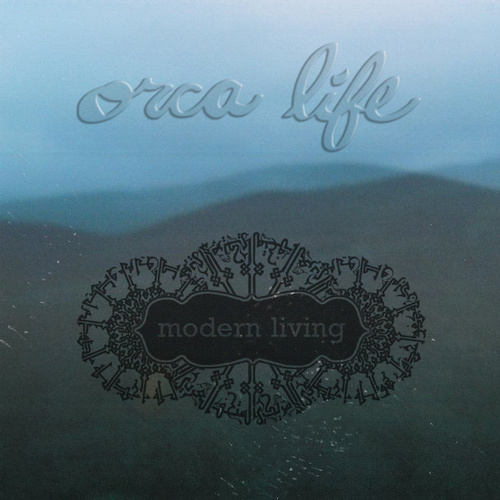Orca Life is the nom de plume of electronic artist Chris Roberts, and it’s the means through which he explores a hazy cross-section of minimalist ambient rhythms, paired with a more dynamic, circuit-based aesthetic. His experiments often tread upon ground initially covered in the ‘70s by electronic pioneers like Harold Budd and Brian Eno. But for every artist such as Didier Marouani or Droids (or even Tim Hecker, for that matter) who effortlessly mines this vein of often abstract tonality, there are countless artists who fail to provide even a modicum of interesting execution or any sense of creative artistic assimilation. Music that resides in these nebulous regions of rhythmic space must be in a constant state of movement or there is ample likelihood that the music could come across as inert — or worse, just plain boring. Thankfully, the music that inhabits Roberts’ latest record under the Orca Life moniker, Modern Living, seems to reside in a constant state of flux, with subtle, and not so subtle, adjustments being continually made at a brisk clip.
Opening with “Voices,” a song that twists bits of tribal percussion together with dynamic droning rhythms, Roberts eases us into his often hyperactive ambient world with the bare minimum of difficulty. The track plays around with a casual electronic repetition, a cyclical beat and melody that finds no resolve. It’s Roberts turning the music in on itself and finding that the end result places him squarely at the beginning — and it’s a fascinating way to begin our descent into the album. But he also knows that simple repetition can become dull and lifeless quickly, and so he infuses the music with a percolating movement that keeps the music from ever feeling staid or bogged down in simple progressions. “Aquatic” finds him relying a bit too heavily on that sense of stillness but the song is soon pushed forward by a series of electronic blips and bleeps and a static-y melody that pulls itself out from the darkness like some lumbering giant.
Other tracks like “Vacation,” with its glitchy, 8-bit effects, and “Spells,” with its condensed swells of atonal orchestrations, showcase Roberts’ playfulness. It’s hard not to imagine a giant smile plastered on his face as plays through the former and a decidedly mischievous grin during the latter. But he doesn’t simply use these sounds as nostalgic waypoints for us; they build and withdraw in an unending cycle of electronic ebbs and flows. That being said, there are moments when it seems like the music is simply caught in some loop, repeating the notes over and over again until the impetus has completely abated and we’re left with a bit of unintended deja vu. “Bells” comes to mind, with its tropicalia-tinged beats folding back on themselves until we’re left with a disquieting sense of torpidity. Luckily, it’s one of the shorter tracks and is over before making much of a lasting impression. And it leads into “Time,” a curiously effective amalgamation of sharp synth stabs and dollar store percussion that manages to give the record a good, hard caffeinated kick in the head.
It’s difficult to say whether Modern Living is Roberts take on the hum and shuffle of everyday life or simply the rattling sounds of some future-perfect dystopia where everyone lives through hard-wired connections to their surroundings. But what is obvious is the sheer sense of exploration and discovery that fills these tracks. Roberts is continuing an obsession that began years ago and has since pushed him into various areas of ambient and deconstructionist recordings that give us a glimpse at the very foundations of the genres within which he works. With burbling blips and scattered pieces of arrhythmic melodies, Modern Living reveals the circuital underbelly of our lives. And while it may appear to be all frayed wires, sockets, and worn connectors under there, these songs lead directly into a pulsing, chromatic heart. And with the sound of a clanging heartbeat to guide us, Roberts is ready for us to press play.

